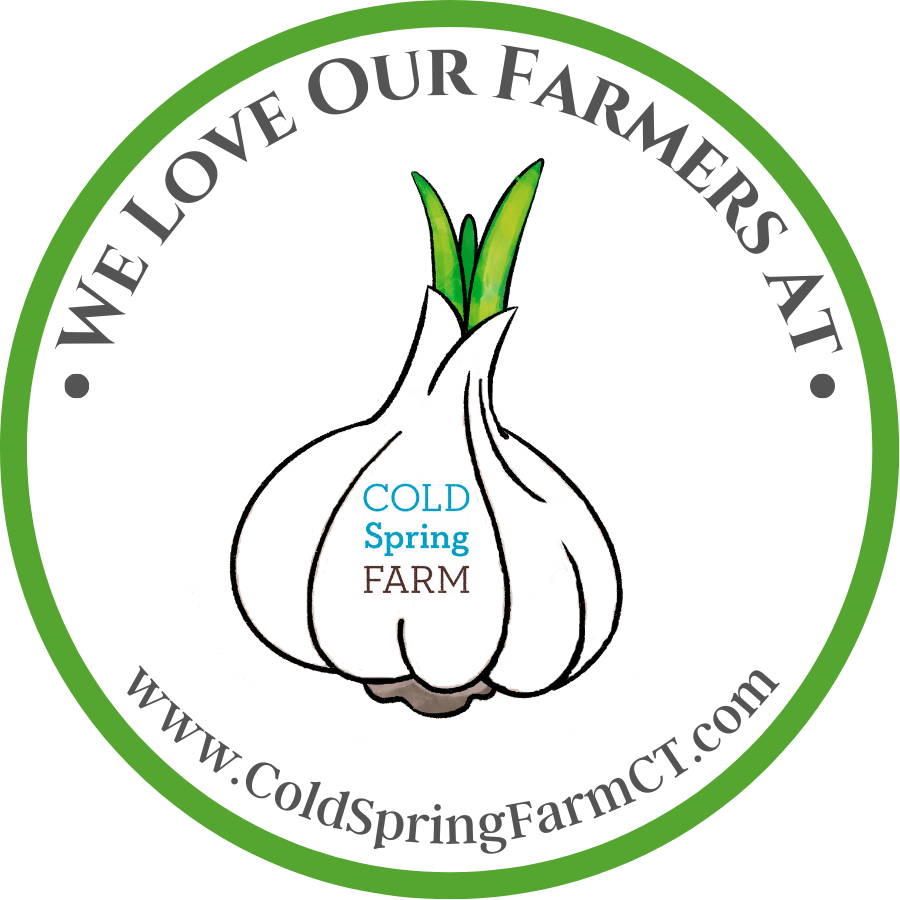Squash is a delight and made easier with Maudie's Super Squash Scooper!
“However blessed you may be with imagination, and whatever may have been your many years of experience, it seems impossible, when you put in hills of squash in spring, for you to be able to visualize how far they will probably wander before frost.” - Ruth Stout
Squash is a delight both in Summer with its waxy bite, and in Winter months when all else is put to rest. You can eat all of it, too. The flesh, the blossoms, the seeds, in myriad ways. Raw, roasted, sauteed, baked, grilled, fried, mashed, and stuffed. You can achieve whatever your palette desires and be rewarded by your efforts as quickly as you like.
Our favorite tool for preparing squash is Maudie’s Super Squash Scooper. It makes cleaning out the center of a variety of squash quick and easy! If you don’t believe us, check out our video where Farmer Jess shows how quick and versatile the Squash Scooper is on different types of winter squash. Maudie’s Super Squash Scooper is available for purchase on our website and in The Farm Stand.
Here’s a quick recipe for ROASTED SQUASH SEEDS:
Collect the seeds and rinse off the pulp.
Toss the seeds with a little olive oil and sea salt.
Spread them on a baking sheet and roast them at 400 degrees for 20 minutes.
Enjoy!
There is a lot of nutrition to gain from eating squashes of all kinds.
In particular, those squashes with an orange flesh have an incredible amount of Vitamin A.
Summer squashes are high in vitamins A, B6, and C, folate, magnesium, fiber, riboflavin, phosphorus, and potassium. Of all squashes, the mighty acorn squash ranks highest in nutritional value.
Types Of Squashes
Summer Squash: This variety is less mature and smaller in size, and should be eaten sooner. There are generally four types of summer squash, crookneck, zucchini (green and yellow), straight neck, and scallop (pattypan). They have thin edible skin and tender flesh that has high water content with a sweet and mild flavor. Their soft seeds are rich in vitamins A and C, and niacin.
Winter Squash: Contrary to its name, winter squash is a warm-weather crop. The name has been derived because they can be stored throughout the winter. The common types of winter squash include spaghetti squash, acorn squash, and pumpkins. Winter squashes are more mature and can be stored and can be used later. They have hard, thick skins and seeds and a high content of vitamins A and C, iron, and riboflavin. They have firmer flesh and their skin is inedible.
Acorn Squash: With a moist, fleshy, fibrous yellow orangey interior and a ribbed, dark green orangey hard but edible rind, this squash justifies its name with its small, acorn-like structure and is the most commonly available squash throughout the year.
Butternut Squash: This bell-shaped, long-footed, thin-skinned, butterscotch-colored squash with a creamy, dense interior is one of the most liked varieties of winter squashes and has the highest content of vitamin A and C as compared to other squashes.
Hubbard Squash: Hubbard Squash is the largest winter variety of squash which has an orange to dark gray colored hard skin and a sweet and savory yellow-colored flesh inside. It is sugary in nature and is ideal for pie filling and purees.
Pumpkin: A bright orange-tinted skin and a light orange, dense, mellow sweet flesh, this tasty and healthy squash weighs from 2 to 8 pounds and is used to make pie fillings, ketchup, and more.
Spaghetti Squash: This is an oval, yellow-colored, stringy fleshed, mild tasting squash. The flesh when cooked separates into spaghetti-looking strands and hence justifies the name of this squash.
Zucchini: This is a light or dark green colored, highly nutritional squash which is treated as a vegetable and is an ingredient in many savory dishes.
Patty Pan: Patty pan Squash or yellow squash is a small, circular, and shallow-shaped squash with scalloped or curved edges and a green, white or yellow colored covering. It is a storehouse of essential vitamins and minerals that render numerous health benefits when consumed.
Delicata Squash: Delicata squash has other nicknames such as Bohemian squash, peanut squash, or sweet potato squash, and is an oblong variety of squash with its lemon tinted and green orangey streaked, edible outer cover, and soft, creamy and sweet potato tasting inner pulp, make it an ideal choice for stuffing and roasting. This belongs to the family of summer squash, but some consider it to be a winter squash.
Yellow Crookneck: This squash has a ‘crooked neck’ or a curved stem end and a yellow skin and flesh. This is one of the most popular summer squashes.
Tromboncino: A one-foot-long, pale green-colored, heirloom plant from Liguria, also known as zuchetta, has greater pest-resistant property compared to other squash. It is slower in growth than other squashes but remains popular in Italy and abroad.
Health Benefits of Squash
Beneficial for the Heart
Good for Weight Loss
Prevents Cancer
Healthy Bones
Eye Health
Good for Colon Health
Maintains Prostate Health
Reduces PMS symptoms
Boosts the Immune System
Vitamin-Rich
Low in Carbohydrates
Prevents Constipation
Vegetable Source of Protein
Provides a Boost to Digestion
Helps Fight Diabetes
Regulates Blood Pressure
Antioxidant Benefits
Reduces Cholesterol Levels
Asthma Prevention
Improvement of Muscle Contraction and Transportation of Nerve Impulses
Maintains Healthy Skin
Prevents Skin Aging
Promotes Hair Growth
